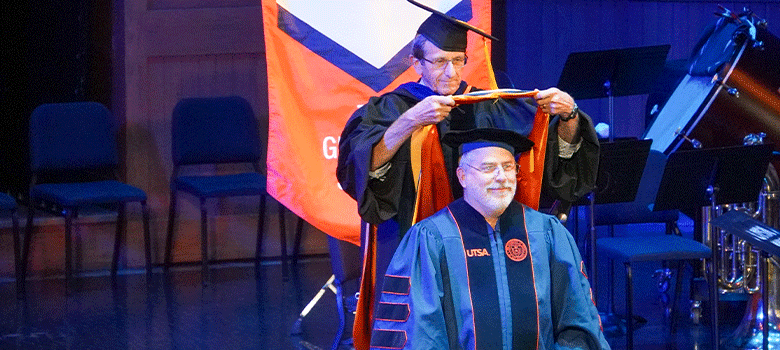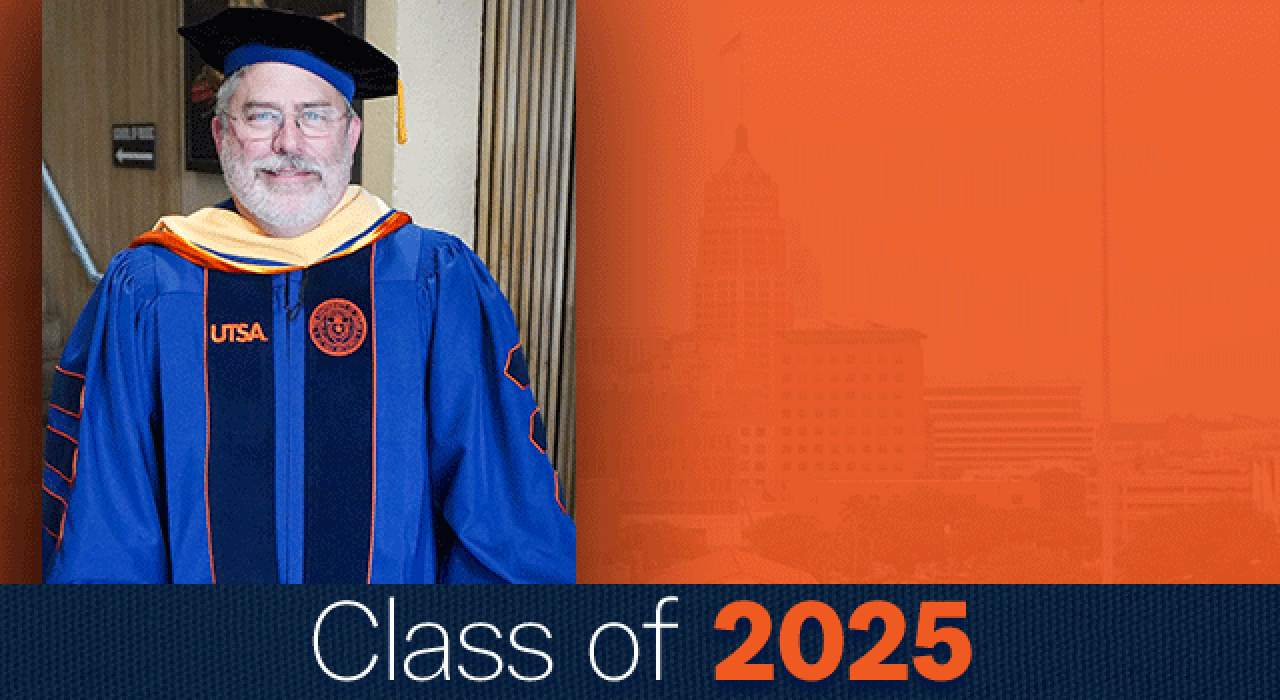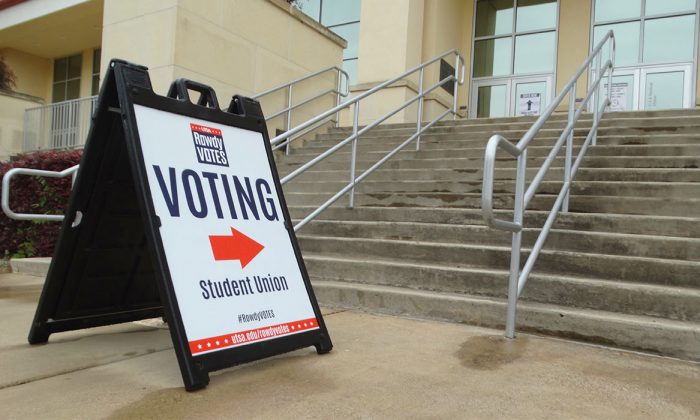Clint McKenzie’s journey to a doctoral degree has been anything but typical. After retiring from a 20-year career with the City of San Antonio and working full-time as a project archaeologist and archival researcher with the UTSA Center for Archaeological Research (CAR), McKenzie pursued a lifelong goal of earning a doctorate in anthropology from UTSA.
A San Antonio resident since he was three years of age, McKenzie’s connection to UTSA runs deep. He earned his undergraduate degree in anthropology from the university in 1990 and has been involved with CAR in various ways for nearly 50 years, first as a student volunteer and most recently as a staff archaeologist.
“I’ve lived here all my life, and I love San Antonio,” McKenzie said. “UTSA was a known quantity for me in a good way. I knew the program. I knew the faculty. The opportunity to work with the faculty, especially my mentor Dr. Robert Hard, and to be based at the Center gave me the chance to write and publish while doing meaningful research.”

McKenzie’s dissertation is a detailed historical demographic study of early San Antonio populations. Using tens of thousands of sacramental records, he reconstructed data from the 18th and early 19th centuries to uncover how the population functioned, survived and grew.
“I logged almost 8,600 hours on this dissertation,” he said. “And I still love it. It’s this incredibly complex puzzle. You get to see what happens when you start aggregating all this data. It starts telling you something larger about people and communities.”
At the heart of his work is immigration, that describes people who moved to San Antonio during its early years. While the frontier city depended heavily on incoming soldiers and settlers in the eighteenth century, by the century’s end a shift began. More residents were born locally than arrived from elsewhere.
“You see how opportunity, land access and policies either encouraged or discouraged people from settling here,” he explained. “It’s a story of tradeoffs. Controlling land and resources preserved some communities but limited broader growth.”
As for what comes next, McKenzie is eager to make his research more accessible to others, especially genealogists and local historians.
“While there are genealogies for some of San Antonio’s prominent early families, the majority of residents are not in those records. I’ve captured everyone I could find,” he said. “We are working on ways to publish this so people can easily see what records their ancestors appear in and where to find the original documents. It is not just for scholars. This is for anyone who wants to understand where they come from.”
For students considering UTSA’s anthropology program, McKenzie points to a rare opportunity.
“If you are interested in archaeology or anthropology as a career, there are very few places that have what we have here at UTSA,” he said. “UTSA’s Center for Archaeological Research is a powerhouse for cultural resource management. Being able to work there while studying is a pretty good deal.”
Now officially hooded, McKenzie shows no signs of slowing down.
“The idea of not being busy scares me,” he said. “I have a lot of plans including potentially turning my dissertation research into a book, and I am pretty good about making sure my plans come to fruition.”



